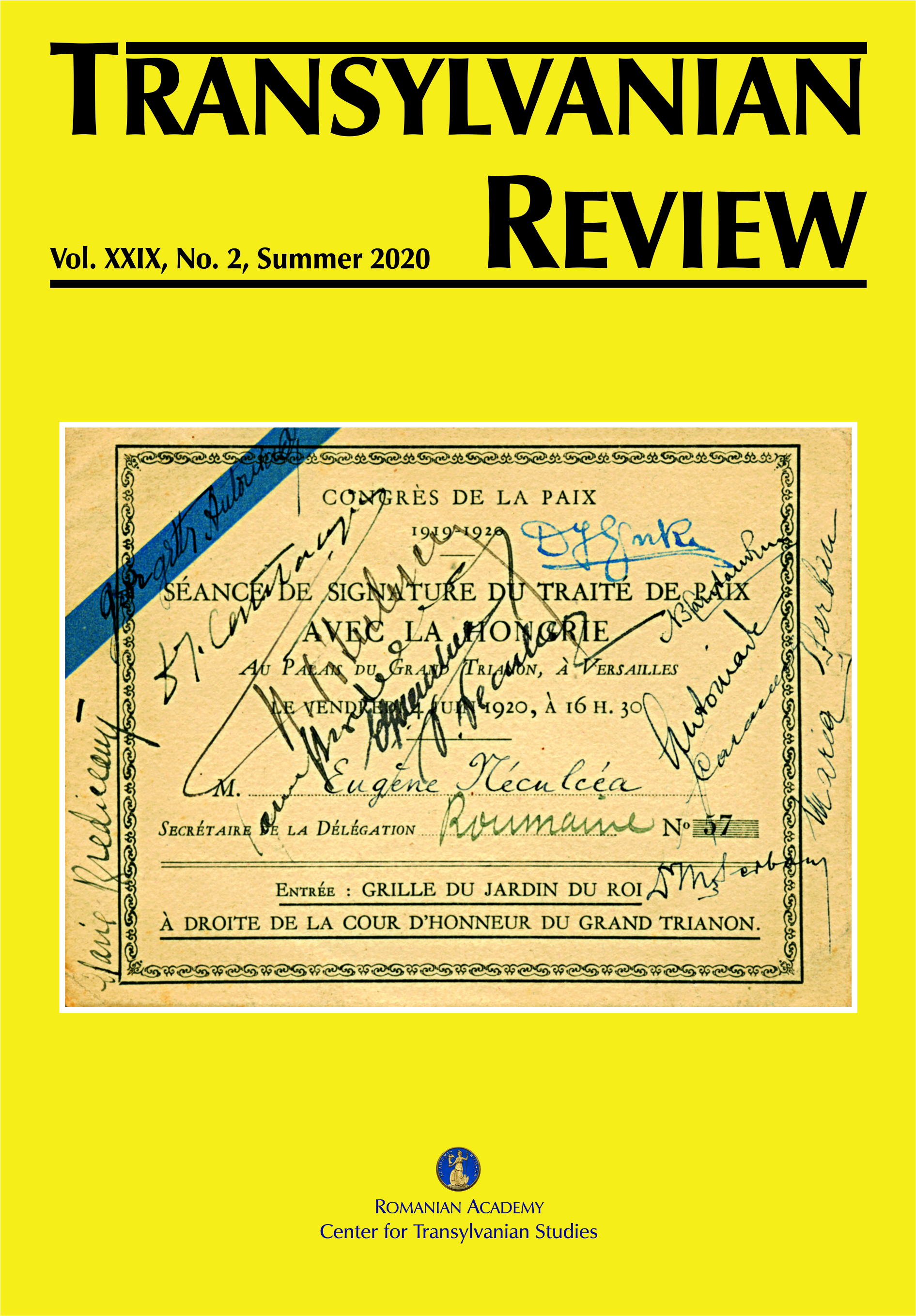The Need for a Law to Declare 4 June
As the Trianon Treaty Day
The Need for a Law to Declare 4 June
As the Trianon Treaty Day
Author(s): Titus CorlăţeanSubject(s): History, Recent History (1900 till today), Interwar Period (1920 - 1939)
Published by: Academia Română – Centrul de Studii Transilvane
Keywords: Treaty of Trianon; 4 June 1920; Romania; Hungary; national minorities; right to self-determination of nations;nationality and ethnicity of Copernicus;
Summary/Abstract: On 4 June 2020, Romania will celebrate 100 years since the signing of the Trianon Peace Treaty. This event constituted an essential page in the history of the Romanian nation, which materialized in a peace treaty concluded by the Allied and Associated Powers, including Romania, withHungary, as a successor state of the Austro-Hungarian Empire, a defeated state in World War. Under the mentioned peace treaty, the Great Powers acknowledged the union of Transylvania(and the eastern part of Banat) with Romania as well as the sovereign will of the Romanians inTransylvania expressed through a vote on 1 December 1918, that is, through the Resolution ofthe National Assembly of Alba Iulia. Beyond any historical and political-legal meanings of the Treaty of Trianon, this treaty represents in itself a document with strong spiritual connotations for Romanians, which justifies the need to celebrate its signing date through a solemn legislativeact adopted by the Romanian Parliament. From this perspective, the author makes reference toa legislative proposal—undergoing its final adoption procedure—aiming to declare 4 June as the Trianon Treaty Day and to establish the appropriate steps for the proper celebration of this day at national and local level. The author also analyzes from a critical perspective two laws adoptedby Hungary in 2010, namely a new law on the Hungarian nationality and a law on the “unityof the Hungarian nation,” meant to “commemorate the Trianon Diktat.” The political and legal analysis of the two Hungarian laws reveals the political will and the intent of the legislator from the neighboring country to call into question or even challenge the provisions or consequences ofthe Peace Treaty signed on 4 June 1920, which have been subsequently included in various major bilateral or multilateral international regulations.
Journal: Transylvanian Review
- Issue Year: XXIX/2020
- Issue No: 2
- Page Range: 47-63
- Page Count: 17
- Language: English

